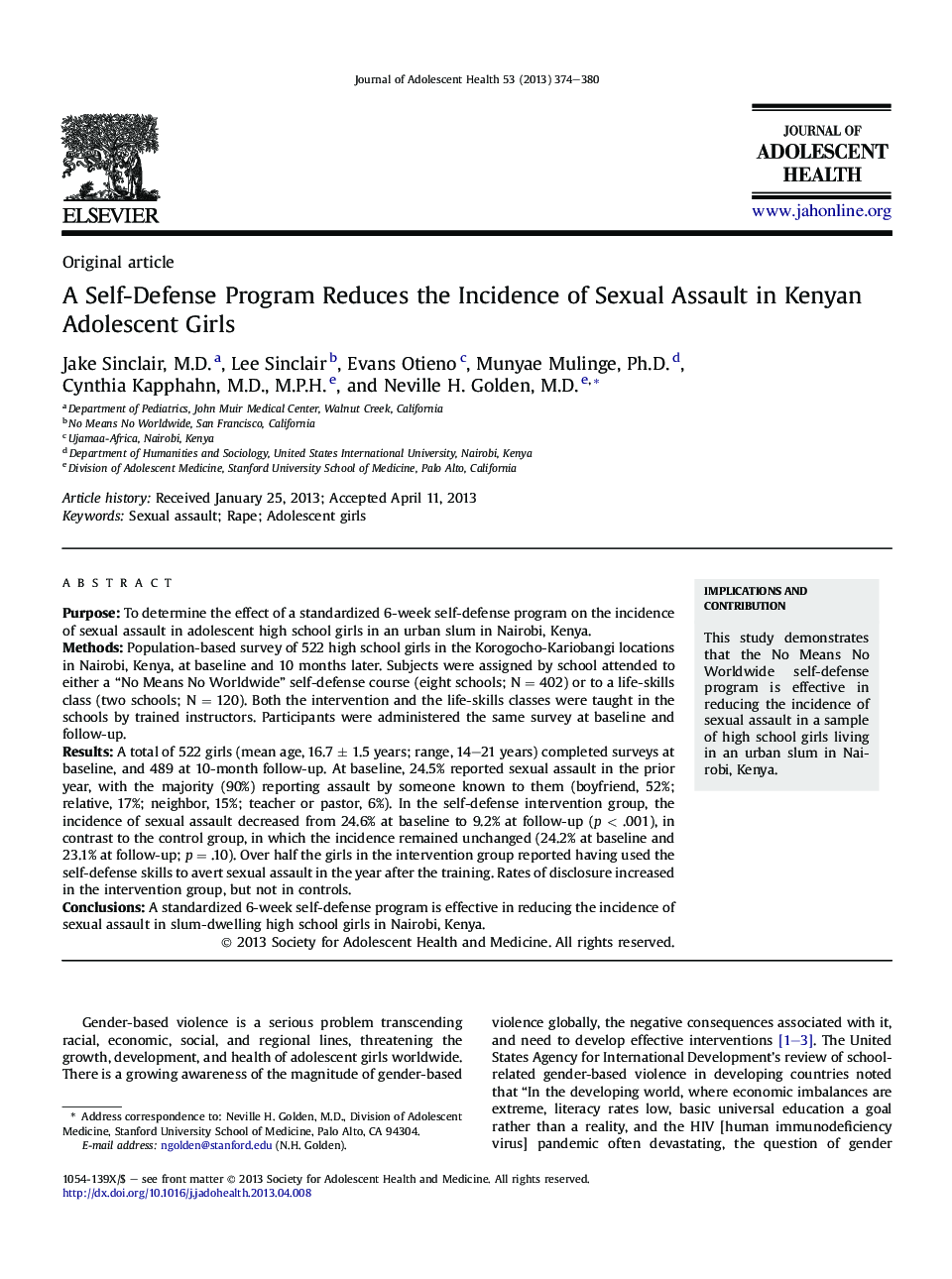| Article ID | Journal | Published Year | Pages | File Type |
|---|---|---|---|---|
| 1079314 | Journal of Adolescent Health | 2013 | 7 Pages |
PurposeTo determine the effect of a standardized 6-week self-defense program on the incidence of sexual assault in adolescent high school girls in an urban slum in Nairobi, Kenya.MethodsPopulation-based survey of 522 high school girls in the Korogocho-Kariobangi locations in Nairobi, Kenya, at baseline and 10 months later. Subjects were assigned by school attended to either a “No Means No Worldwide” self-defense course (eight schools; N = 402) or to a life-skills class (two schools; N = 120). Both the intervention and the life-skills classes were taught in the schools by trained instructors. Participants were administered the same survey at baseline and follow-up.ResultsA total of 522 girls (mean age, 16.7 ± 1.5 years; range, 14–21 years) completed surveys at baseline, and 489 at 10-month follow-up. At baseline, 24.5% reported sexual assault in the prior year, with the majority (90%) reporting assault by someone known to them (boyfriend, 52%; relative, 17%; neighbor, 15%; teacher or pastor, 6%). In the self-defense intervention group, the incidence of sexual assault decreased from 24.6% at baseline to 9.2% at follow-up (p < .001), in contrast to the control group, in which the incidence remained unchanged (24.2% at baseline and 23.1% at follow-up; p = .10). Over half the girls in the intervention group reported having used the self-defense skills to avert sexual assault in the year after the training. Rates of disclosure increased in the intervention group, but not in controls.ConclusionsA standardized 6-week self-defense program is effective in reducing the incidence of sexual assault in slum-dwelling high school girls in Nairobi, Kenya.
